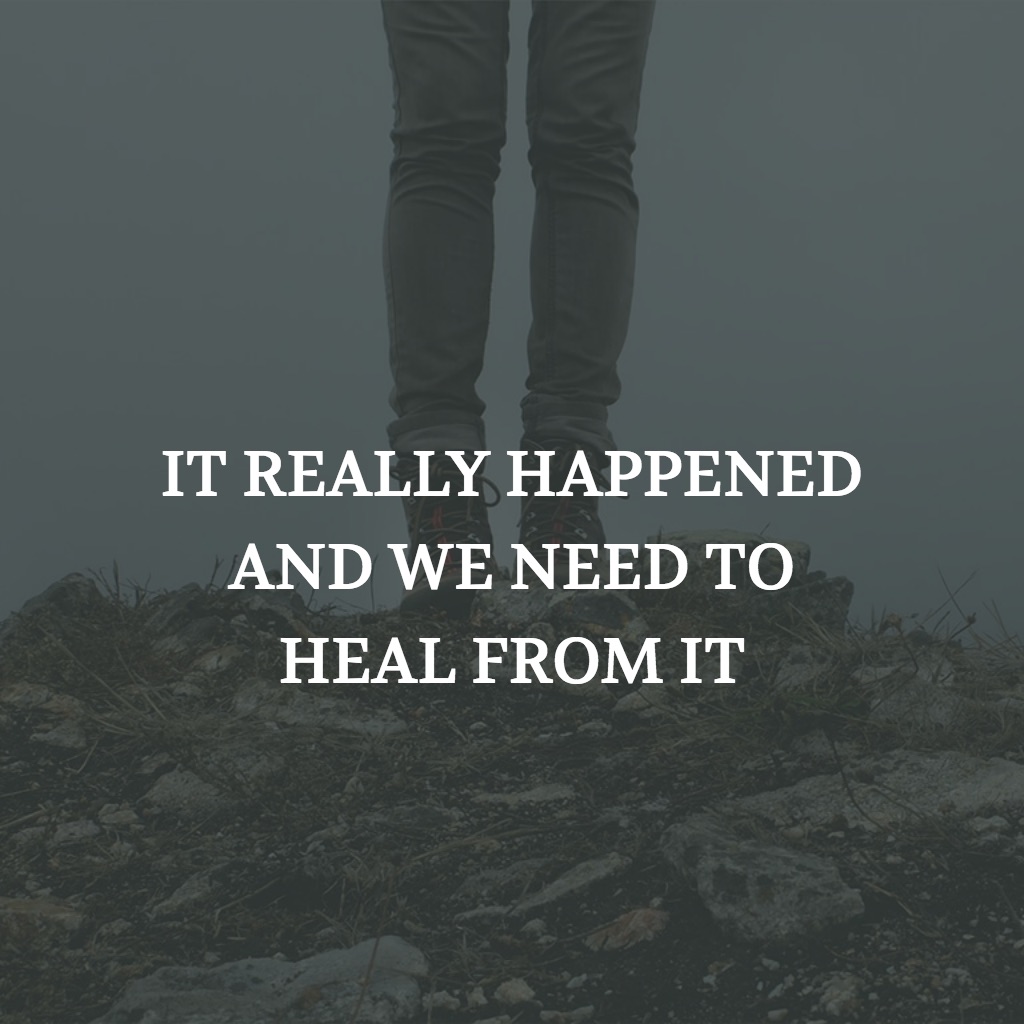Holidays are rituals. They are traditions. They are anniversaries. And if you have experienced significant loss or trauma, holidays are an archipelago of memory and loss. Holidays come embedded with reminders and triggers and explosions of memory. That’s exactly what tradition and ritual are supposed to do. But holidays, unlike many ordinary days, are designed as full sensory experiences—they hit our sense of smell, our sense of taste, what we see, the songs we hear. It may be 2016, but to your nose, or your tastebuds or your ears—it’s suddenly 1943, or 1969, or 2003. This time travel at the holidays is true for everyone, not just for people who have experienced trauma, but it is faster for trauma survivors because the memories connected to the songs, or tastes or smells were more frightening and highly charged. They left a more solid imprint.
For many trauma survivors the problem is one of presence: it seems at the holidays you live in two worlds even more than you usually do. The world of the present and the world of the past seem to constantly collide, with the past just as present at times as the present. Perhaps the memories would be easier to hold if there wasn’t the constant pressure to not only hold them but to be happy the whole time. It’s this awful juxtaposition between the memories you hold and the outside expectation of fun. You are sitting at a beautiful meal in the present and you are hearing the violence in your head from fifty years ago. Yet no one at the table knows.
For people who have experienced significant loss, the problem is one of absence. Every holiday marks another occasion where someone or something is missing. It can be a time when the loss is felt so keenly, when you count how old they would be now, what they would think about this holiday, when you see the world without them in stark relief. You feel badly for enjoying something without them. And of course for many people—both are true—the presence of the trauma and the absence of loss. Soldiers who know where they fought during a previous holiday and the troops who didn’t come home with them.
So I say to all those who struggle with trauma and loss at the holidays—you are not alone. Like the tale of the mustard seed, it is unlikely you could sit at any holiday table in the world without finding a fellow pilgrim on the journey of healing—either from trauma or loss. The cure isn’t the modern notion of ‘moving on’—the cure is a more difficult task of holding both. You see when you try to just ‘move on’ –then its either the past or the present—you are jostled involuntarily from one to the other. But if you can build the muscles to hold both –hold that both the past and the present are true—then paradoxically the present can become more real. Holding both allows you to hold your feelings from the past and your feelings in the present as real and true. Holding both is not so much an effort as a softening. You breathe, you acknowledge, you hold, you sit. You don’t do anything in particular, but you don’t run away from yourself and you don’t expect yourself to feel differently than you do. Holding both allows an integrated whole memory to begin to form out of the colliding worlds, out of absence and presence. So start slowly, be kind to yourself as you begin this new practice, and as you feel more solid, reach a hand to someone who is just beginning.
© Gretchen L. Schmelzer, PhD 2016




